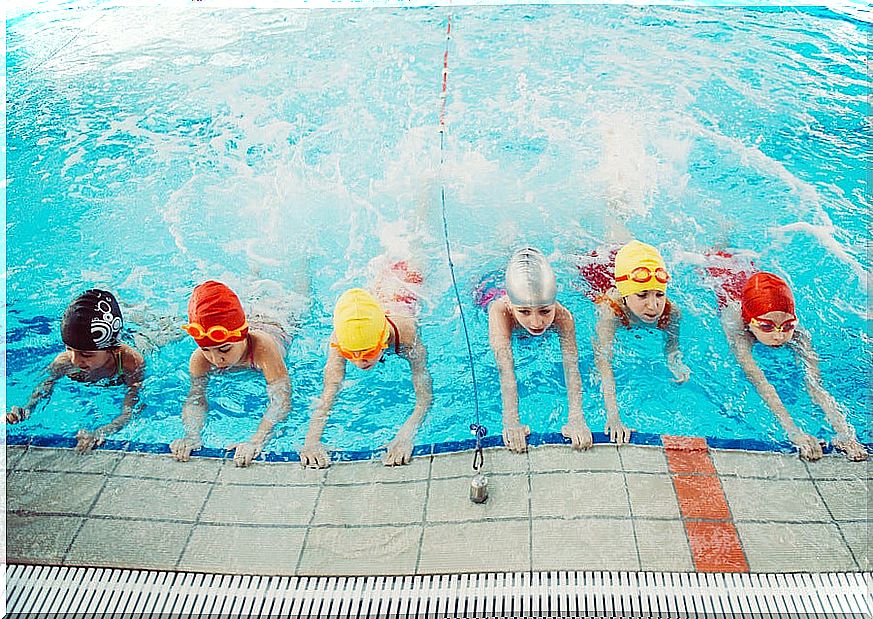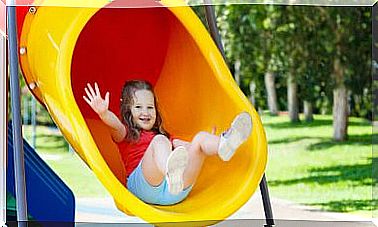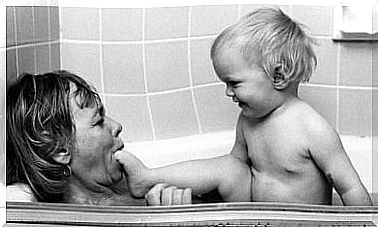Can Chlorine In The Pool Cause Allergies?
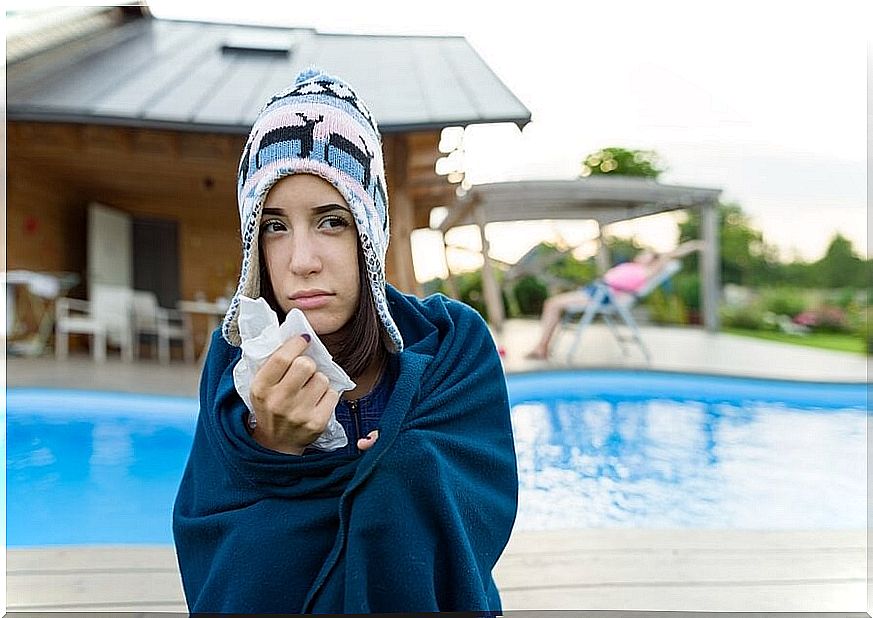
With the arrival of summer and holidays, we look for options to refresh ourselves and spend unforgettable moments with the family. However, sometimes illness can play tricks on us. In this article, we will tell you if chlorine in the pool can cause allergies and how to prevent and treat them.
Pool chlorine can cause respiratory allergies
For many people, the smell of chlorine is related to happy days in the pool, family fun, or fun swimming lessons. However, for others it may mean respiratory problems and allergies.
While it is true that this element is used to keep the water in good condition and to ward off bacteria, it is also true that it is a very strong product that is harmful to health.
Pool chlorine can cause allergies in both adults and children. In infants, when they are very young, the risk of lifelong respiratory diseases, such as asthma, can be increased.
Whether the pool is covered or uncovered, the consequences are similar. The possibility of suffering this type of lung problems will depend on how long you stay in the water, how often you submerge in the pool or the amount of chlorinated water you swallow.
The younger children are, the more vulnerable they are to developing allergic reactions to this product. One of the first symptoms is irritation of the nostrils and eyes; They may also experience coughing, vomiting, and trouble breathing — a feeling of shortness of breath.
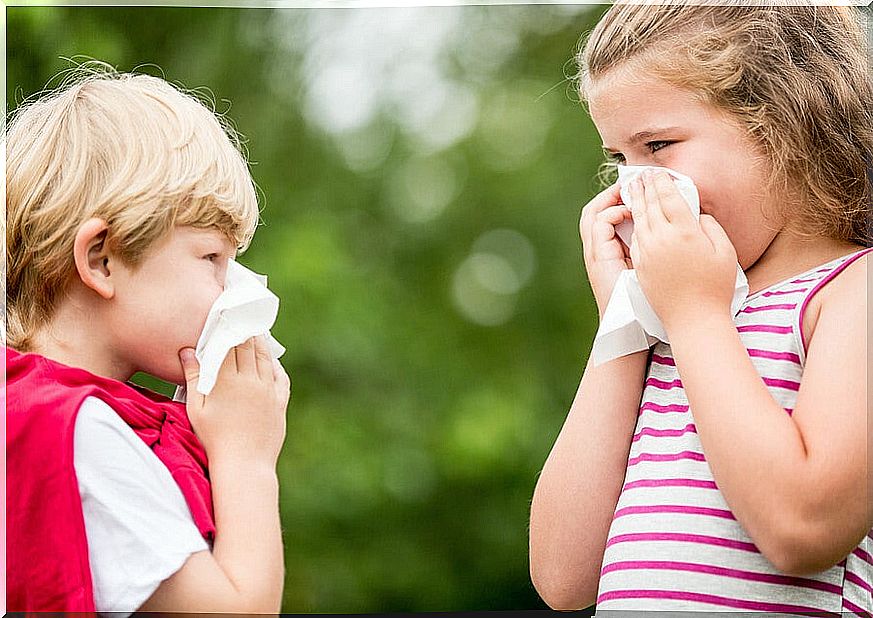
Pool chlorine can cause skin allergies
When it’s hot, we just think about cooling off whatever it takes And if we are lucky enough to have a pool at home or at a friend’s house, we feel like the happiest beings in the world.
However, submerging ourselves in chlorinated water can have consequences for our skin. This is due to the fact that the product that is used to clean the pool and that it is kept for a longer time also causes dryness and allergic reactions.
The most affected areas are the mucous membranes, that is, the eyes, the nose and even the genitals. The famous ‘red sight’, a product of spending many hours in the pool, is a clear sign of what chlorine does to our dermis.
Chlorine increases skin dryness, especially if we bathe every day. It is necessary to take care that the skin is protected from external agents with a kind of ‘layer’, which can be reduced, altered or eliminated due to very aggressive chemicals. This happens especially in skin that is too sensitive and fair.
And not only that, but it also has a negative impact on the hair – especially if it is clear – and on the nails. Who should we blame?
Chlorine would be our first answer, but we have to go a little further. In reality, only some of its components are harmful to our health: copper sulfate, iron and metals.
How to avoid allergic reactions to chlorine
Since chlorine is used to disinfect the pool, avoid exposure to certain bacteria – such as Escherichia coli – and that the water remains in good condition for longer, we must change certain habits if we want to reduce allergies or reactions it produces:
- Do not prolong the baths in the pool for more than one consecutive hour.
- Wear goggles, ear or nose plugs, and hair caps.
- Shower thoroughly when leaving the pool and wash your bathing suit completely.
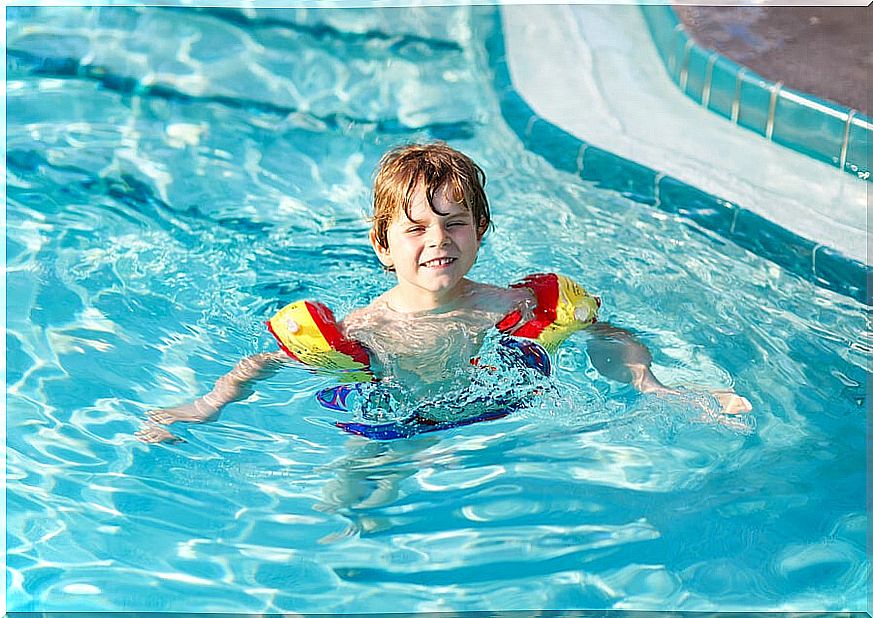
- Do not swallow water.
- Trying to go to the beach or river on vacation — instead of always choosing the pool.
- Choose public swimming pools that are not very crowded or during off-peak hours.
- Ask about cleaning and maintaining the water.
- For the home pool, use milder chlorine formulas.
It is true that the chlorine in the pool can cause allergies in some people, but if we use this product properly, we will enjoy a summer without negative consequences for our health.
